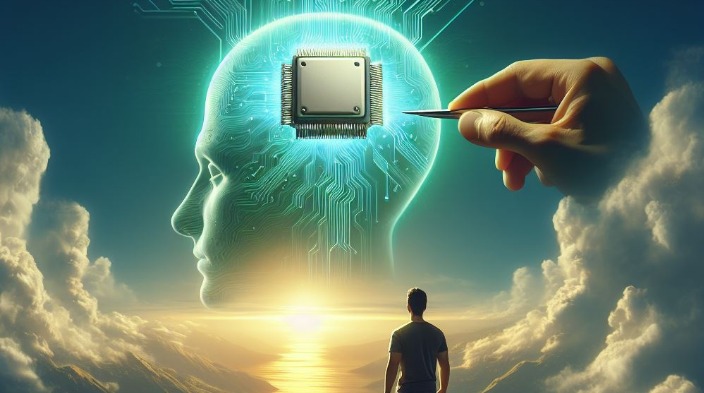OpenAI founder Sam Altman, the company behind ChatGPT, has published article in which he speaks in an inspiring, almost messianic tone about how artificial intelligence will usher humanity into a new era, just as we moved from the Stone Age to agriculture or the industrial progress of the 20th century thanks to various technological advances. (Here we summarize the main points of his article on “The Age of Intelligence.”) However, despite his optimistic tone, Altman made a warning that caught my attention: the lack of infrastructure to make artificial intelligence an accessible tool could trigger wars.
But what infrastructure? And what wars and between whom?
Although he didn’t go into detail, I think Altman gave a clue as to what conflicts he was talking about. “If we want to put AI in the hands of as many people as possible, we need to lower the cost of computing and make it affordable, which requires a lot of energy and chips. If we don’t build enough infrastructure, AI will become a scarce resource that will be fought over, making it a tool primarily for rich people,” he said in his article.
The Struggle for Taiwan

I think the first key point here is the availability of microchips. So far we have not seen armed conflicts over control of microchip production. However, for several years China Threatens to Take Control of TaiwanA hypothetical invasion of a country where chips are produced by Nvidia (until recently the most valuable company in the world), Qualcomm, MediaTek and others would put the microchip industry under control.
USA He has publicly declared himself a defender of Taiwan.. Think about how the United States and China are fighting a war for control of the island that produces one of the most valuable resources today – the key to success. Age of intelligence– a rather wild assumption, but based on a more or less real possibility according to recent events.
And we have already seen the economic impact of microchip shortages in 2021, when the COVID-19 pandemic disrupted global supply chains.
Forget ChatGPT, Deep Learning is the Key

I think Altman has been absolutely clear that the messianic technology he is talking about is deep learning rather than artificial intelligence in an abstract form. “Humanity has discovered an algorithm that can actually learn any distribution of data (or rather, the hidden ‘laws’ that any distribution of information produces). With astonishing accuracy, the more computing power and data you have, the better you can help people solve complex problems,” Altman says.
Of course, there are more complete and precise definitions (and complex ones), but, generally speaking, deep learning It’s a series of algorithms that allow a technological system to mimic the way we reason, using unstructured data (think of all the knowledge that’s shared on the internet) to “reason.” That’s why systems like ChatGPT can answer the question of what the concept of God was in the 14th century with good faith, while also throwing out some hoax being spread on the internet. Well, the key, Altman says, is that machine learning works. It’s about what it works for.
The key, again, I think, is obvious in your text: “While I think it will happen gradually, extraordinary triumphs like solving the climate emergency, creating a special colony, and discovering all of physics will be common,” Altman says.
I doubt very much that this kind of technology, which would be a series of Albert Einsteins in the service of progress, will serve ordinary people. Altman speaks of a more prosperous humanity, but I believe that humanity will be business and government elites, such as those who can afford to devote millions of dollars to specialized research. Equal, The path to this prosperity lies through rapidly accelerating climate change, so when Altman talks about wars over the availability of AI, I think only of large-scale armed conflicts to control supply chains (like the Taiwan dispute) or spying and cyber-espionage operations worthy of a Tom Clancy novel to steal those algorithms and which, I fear, ordinary citizens may not even know about.
And yes, maybe one day we will get to dystopian fiction like Terminatorbut now I think the wars Altman is talking about will be geopolitical conflicts, (cyber) espionage, and maybe even trade wars.
Source: Digital Trends
I am Garth Carter and I work at Gadget Onus. I have specialized in writing for the Hot News section, focusing on topics that are trending and highly relevant to readers. My passion is to present news stories accurately, in an engaging manner that captures the attention of my audience.










